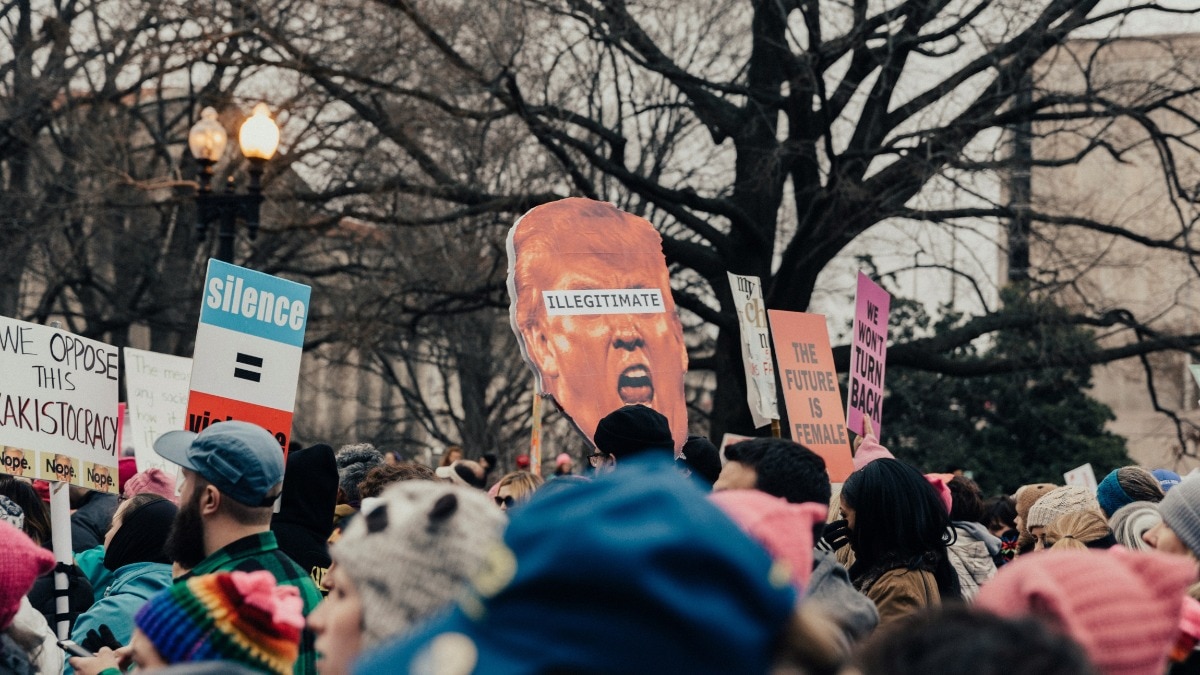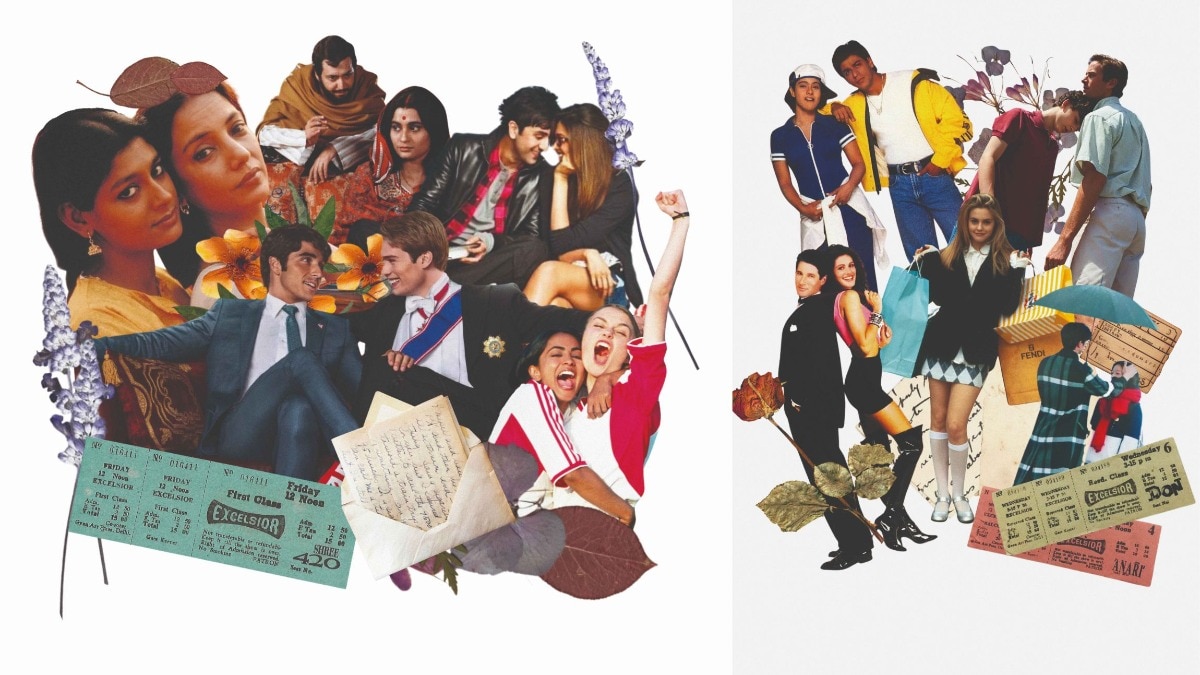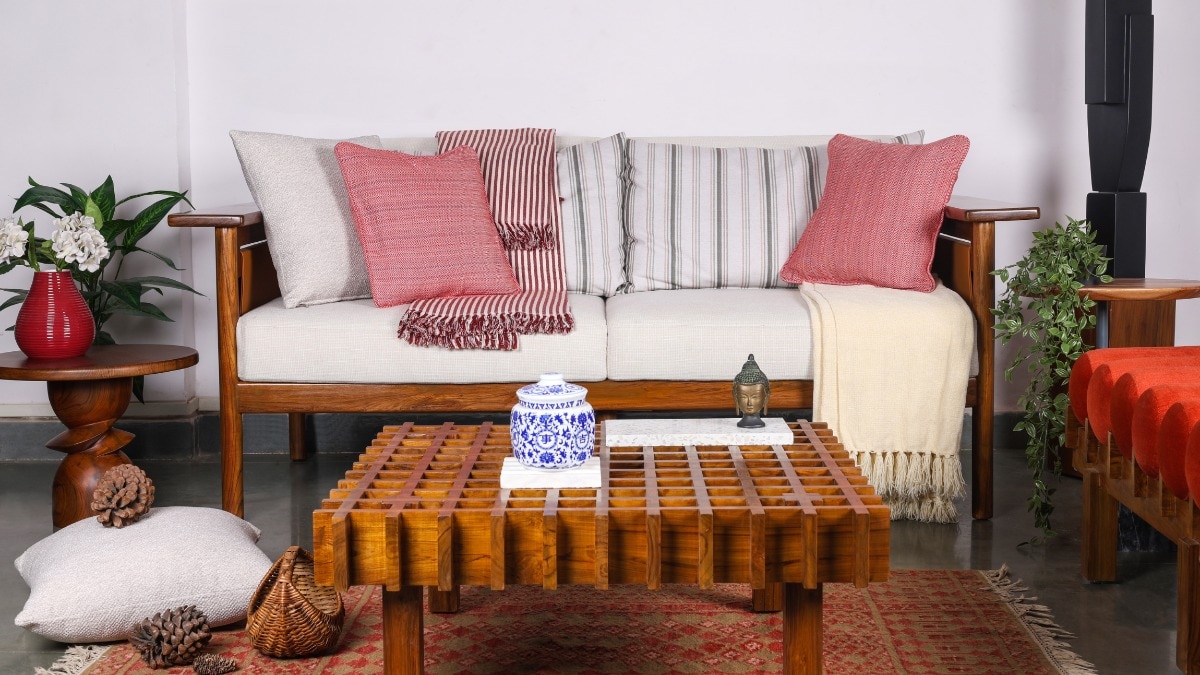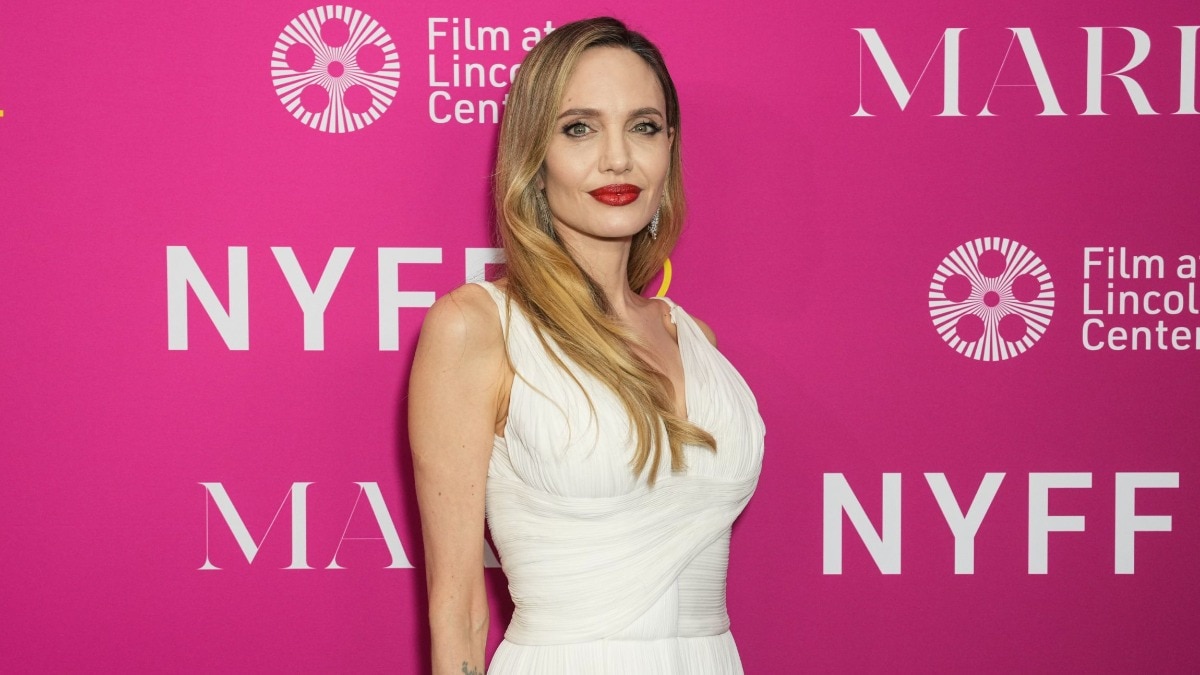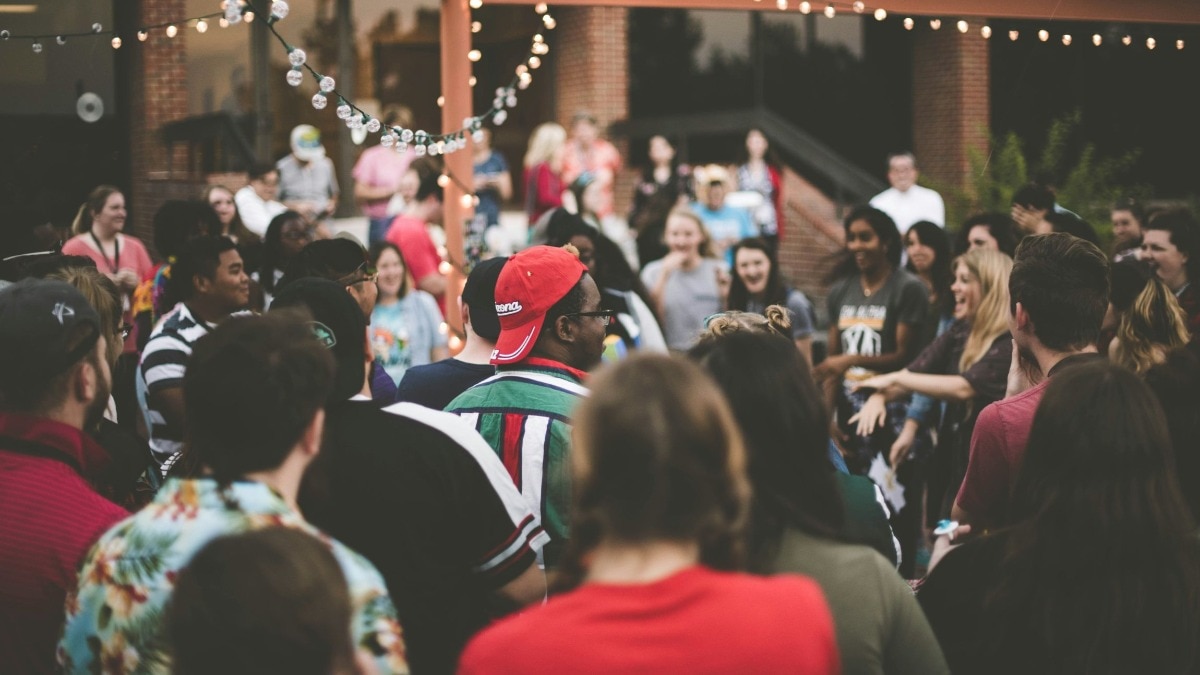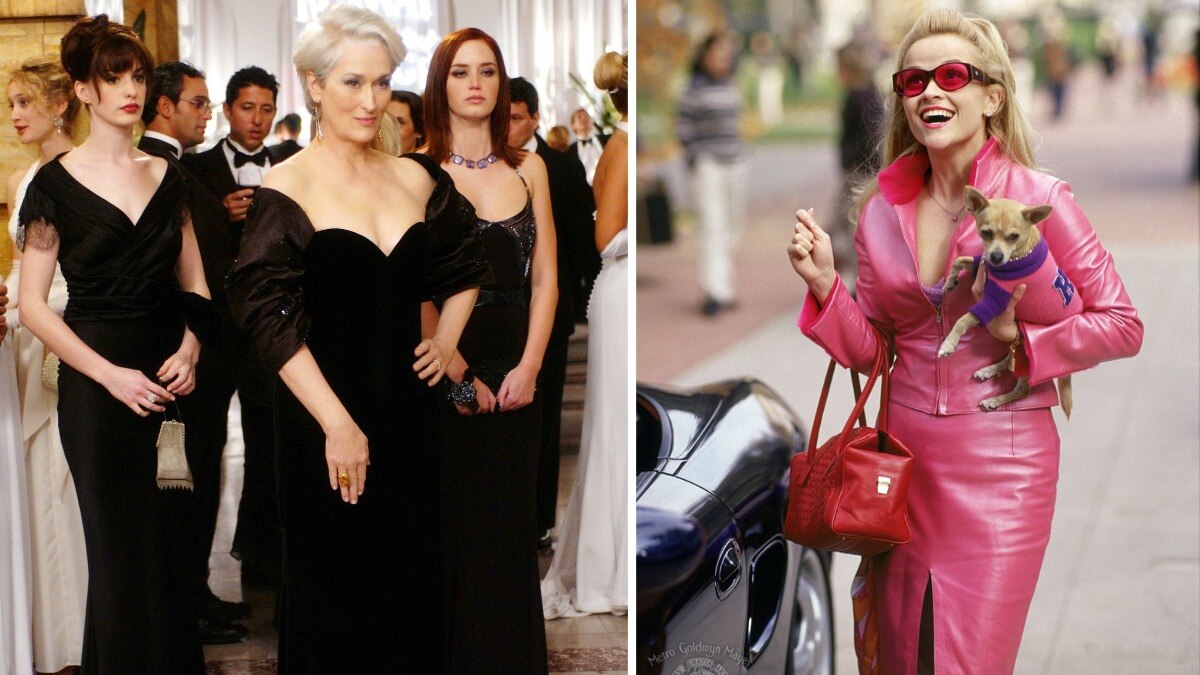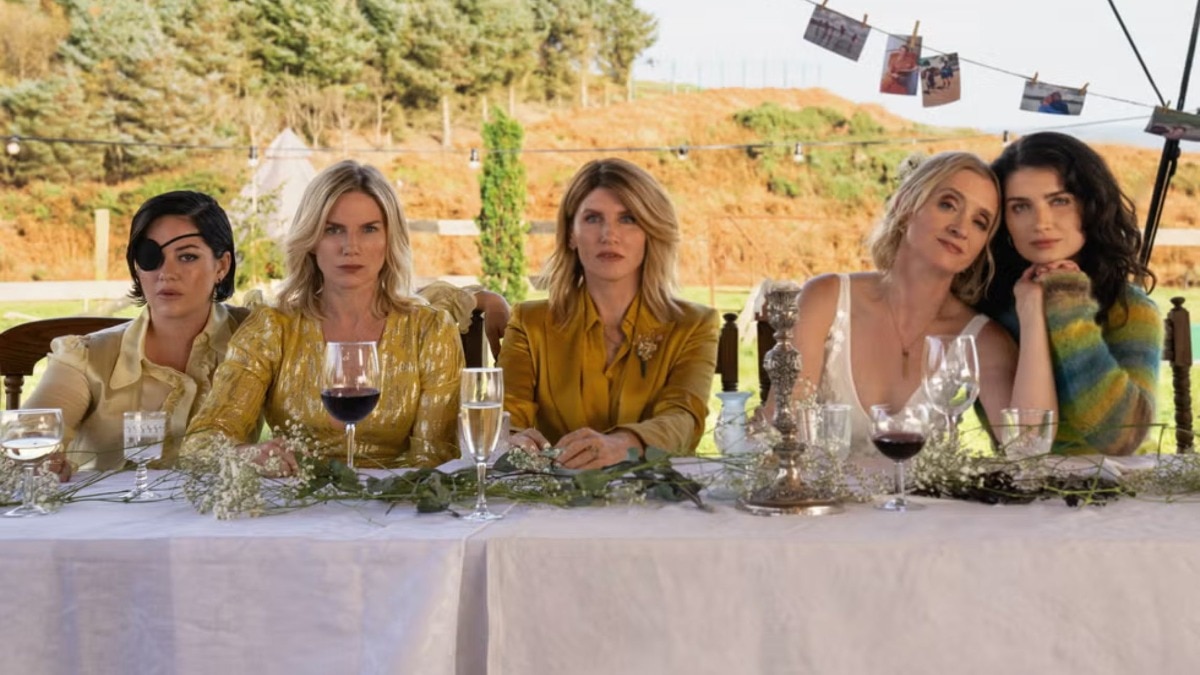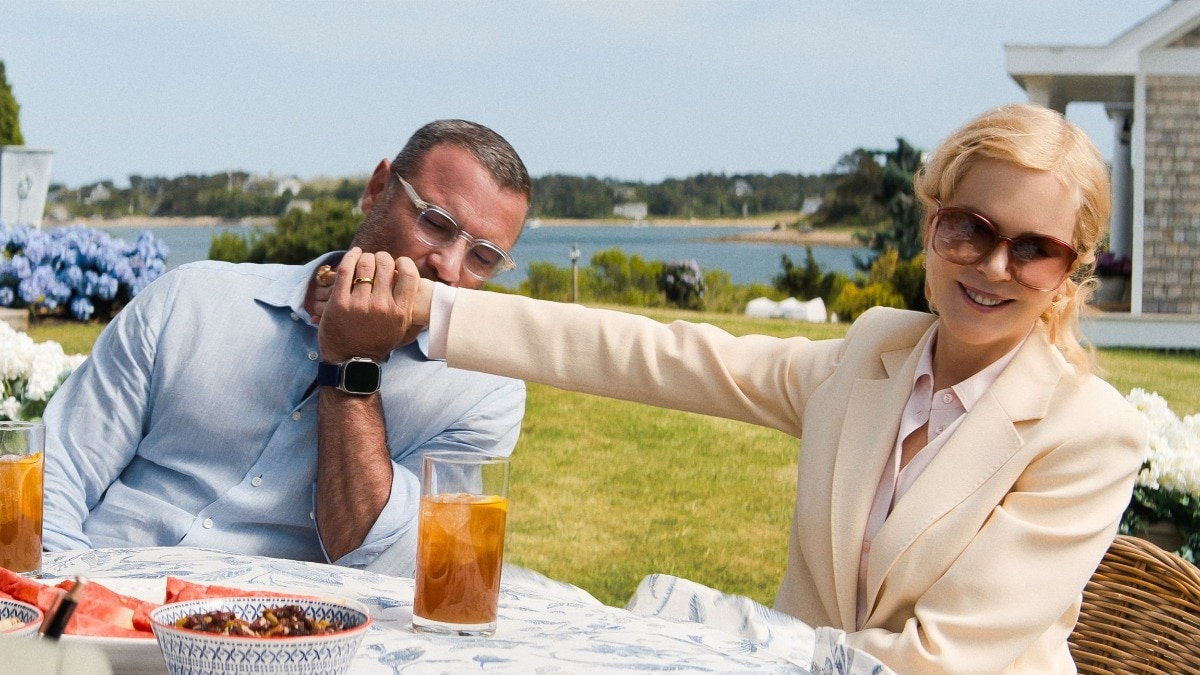How small symbols worn by celebrities turn up the volume on “power dressing”
Celebrities have long used fashion as a tool for silent protest, and the red pin at the Oscars red carpet was the latest one.


As we revelled in the sartorial choices of Hollywood celebrities who brought the awards season to a close with the Academy Awards on Sunday night, and afforded plenty critique to who wore what, who did it best, and what needs to be on our pinboards, there was another pin that demanded our attention—one worn by Billie Eilish, Mark Ruffalo, Finneas O'Connell, Ramy Youssef, Mahershala Ali, Eugene Lee Yang, Kaouther Ben Hania, and Ava DuVernay. The red pin, which featured the silhouette of a hand with a black heart positioned at the palm, was an Artists4Ceasefire symbol, a group of members of the entertainment industry who signed an open letter urging President Biden to call for a ceasefire in Gaza. The more than 400 signatories include names like Bradley Cooper and America Ferrera, who are both Oscar nominees this year, as well as Cate Blanchett, Drake, Jennifer Lopez, Jessica Chastain, Quinta Brunson, Richard Gere, America Ferrera, Cate Blanchett, and Lupita Nyong’o.
Youssef told Variety, “We’re calling for peace and lasting justice for the people of Palestine. And I think it’s a universal message of just, ‘Let’s stop killing kids. Let’s not be part of more war.’ A lot of people are going to be wearing these pins tonight. And it’s because we want to, kind of, use where we’re at to speak to people’s hearts.”
Of course, this isn’t the first time celebrities have used style to, well, make a statement. Remember in February 2016, when Beyoncé strode onto the field at the Levi’s Stadium for the Super Bowl Halftime Show with an army of dancers in outfits that paid homage to the Black Panthers and performed ‘Formation,’ a song that was called the anthem of the Black Lives Matter movement?
In July 2016, the Women's National Basketball Association teams led by the Minnesota Lynx and then the New York Liberty swapped their warm-up uniforms for black T-shirts with the slogans #blacklivesmatter and #Dallas5, among others. Despite individual and team fines from the league, the players persisted.
The same year, Julia Roberts famously walked the red carpet barefoot at the Cannes Film Festival in support of women who were turned away the year before for wearing flats. In 2018, Kristen Stewart followed suit. “If you’re not asking guys to wear heels and a dress, you cannot ask me either,” the actress had said. Only last year, Jennifer Lawrence walked the carpet before the screening of Bread and Roses in a resplendent red Dior gown only to lift it up to reveal thick black flip-flops underneath.
At the 2018 Golden Globe Awards, women in Hollywood, some of the biggest names—from Meryl Streep, to Oprah Winfrey and Reese Witherspoon—wore black in support of the Time’s Up movement and to show solidarity with victims of sexual misconduct. Male celebrities like Ewan McGregor, Armie Hammer, Justin Timberlake, and host Seth Meyers, also in black, added to the statement by wearing Time’s Up pins.
For the 2019 Emmys, Laverne Cox showed her support for the LGBTQ+ community with a rainbow-coloured clutch that bore the date of a Supreme Court case. The custom Edie Parker read, "Oct. 8, Title VII, Supreme Court," which references the Trump administration's efforts to legalise the employers’ authority to fire workers based on gender identity or presentation.
In 2020, Lizzo wore a dress emblazoned with the word "vote" to the 2020 Billboard Music Awards. Designed by Christian Siriano, the "vote" print featured on the dress first appeared in the young designer's runway show in September and was worn by the Grammy Award-winning singer to say, "Whether it's through music, protest, or your right to vote, use your power, use your voice, and refuse to be suppressed."
Of course, then there are designer runways, the likes of Vivenne Westwood, Karl Lagarfeld, Mara Hoffman, and Prabal Gurung to name a few who have let their collections do the talking for them on countless occasions—whether it was Brexit, LGBTQI+ rights, women’s rights, immigrant issues, religious antagonisms, and more.
The list goes on… And while we can debate the quantifiable results and ramifications of these small acts of raising your voice, what they prove beyond doubt is that you have to make a noise to be heard, to let your beliefs be known, and amidst the ever-changing and growing cacophony of social media and factional dissonance, there was no better way of doing it than hitting them in a way that works fastest—visuals. And when it comes from people who matter, in places that matter, the result can only be one that will echo, loudly, and for times to come.
Also Read: 2024 Oscar Awards: Oppenheimer rules the roost, and other big moments


